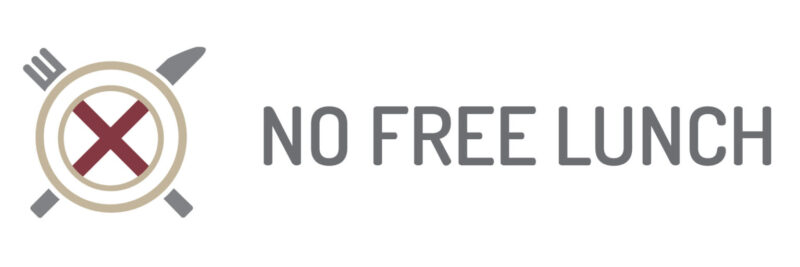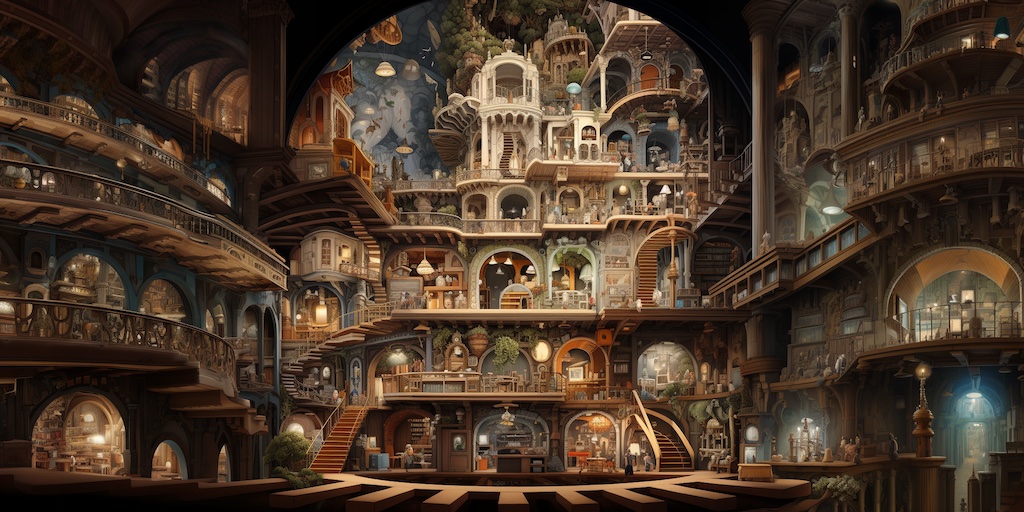There is no such thing as a free lunch
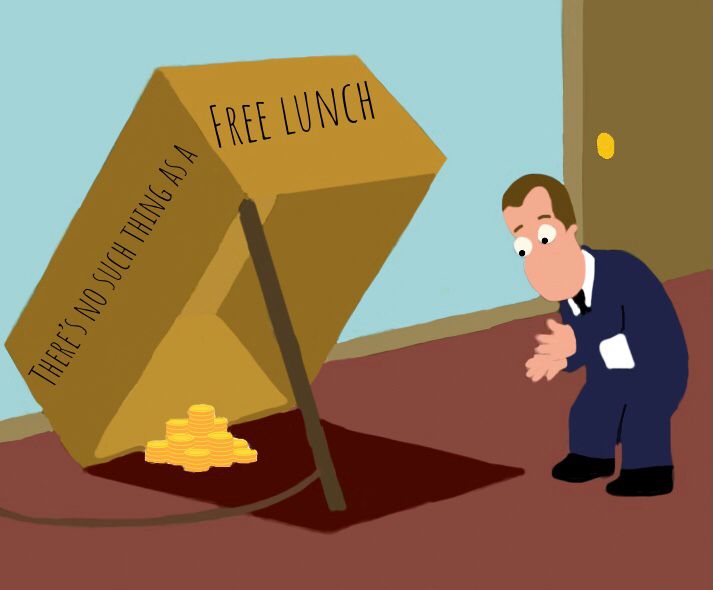
The phrase ‘there is no such thing as a free lunch ’ is a useful rule of thumb to remind us that nothing in life comes for free, but without a practical way to measure it, the free lunch mantra is just a piece of fridge magnet philosophy. We’re here to fix that.
Living by the assumption that everything has a hidden cost is helpful, but unfortunately, most of our decisions can’t be simplified to a choice between good and bad.
It would be cool to have a machine like Willy Wonka’s Eggdicator to tell us which opportunities we should avoid.
Unfortunately, life is much messier than Roald Dahl imagined.
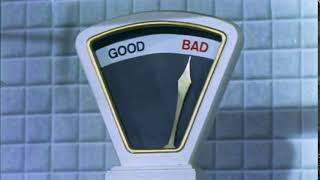
Instead, to understand the meaning of the no free lunch idea, we have to start seeing all our life choices as a trade-off between effort and reward.
Effort vs Reward
Given the choice, we would all opt for outcomes that provide maximum reward for the minimum effort.
There are progressive ways of increasing the reward/effort payoff; you can think of them as force multipliers.
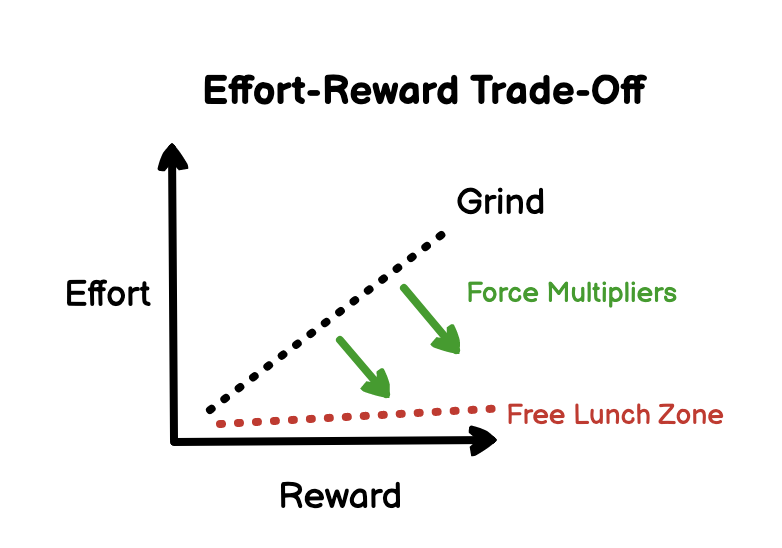
- Possessing a valuable skill or talent
- Taking calculated risks or just being lucky
- Value creation, discovery or invention
But none of these force multipliers is available at the click of a button or the wave of a magic wand.
They are either predicated on a huge amount of implied effort or a random process; any shortcut that promises otherwise is pure fugazi.
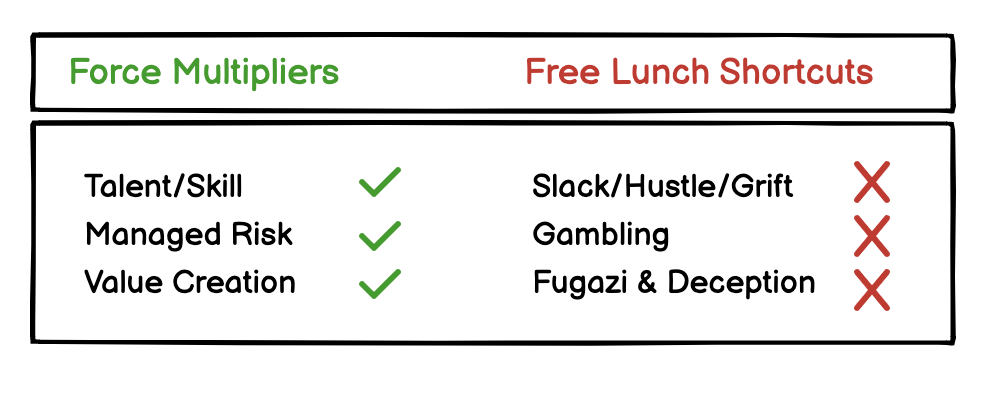
Unfortunately, that isn’t a message people want to hear. We want shortcuts and life hacks that conveniently screen out all the legwork; we want a free lunch, and we want it now.
Adopting a free lunch mindset
Now if you want to avoid being duped by free lunch shortcuts, we can point you in the direction of useful concepts and ideas:
Understand Money
When we measure effort and reward, we think exclusively in terms of money and our jobs, but we should value all our efforts, whatever their ends, because our time and energy are scarce.
When we choose to expend them, it is always at the cost of some other activity – so is never free. This is how the no free lunch concept is defined within economics.
Money is just a tool for exchanging our efforts for something someone else has put their effort into or storing our efforts for the future. Understanding money in this way makes free lunch thinking easier to grasp.
Understand Risk
Taking risks can be fun, especially when it is structured into games such as lotteries or casinos. But gambling isn’t a shortcut to the easy life, despite what your gut might tell you; expected value can show you what those games cost to play.
When risk doesn’t neatly fit into a box, we call it investing or commerce, but as famous Scottish historian Walter Scott once said: “Trade has all the fascination of gambling without its moral guilt.”
Investing always incurs risks, whether you’re trading on the S&P 500 or equity crowdfunding, and the less informed you are, the closer it is to the roll of a dice.
Not all effort is valued equally
The idea that we trade off effort for reward comes with a hefty catch; not all effort is treated equally. Perversely, there is an inverse relationship between jobs that are viewed as public service (nurses or social workers) and their financial reward.
You probably know someone that gets paid a telephone number salary for a job that involves very little or seems pointless.
Though what can call bullshit jobs might seem like a free lunch, we can draw on the late-great anthropologist David Graeber to prove otherwise.
Society cannot be reduced to an x and a y-axis; your status within it influences the relationship between effort and reward.
This humble website cannot unpack why race, sex, class or demography all impact how your efforts are valued, but we can certainly look at how power, and proximity to it, are leveraged for financial reward yet cannot defeat financial gravity – though governments certainly try.
Trade has all the fascination of gambling without its moral guilt
Sir Walter Scott
Know your weaknesses
There is a fundamental reason why a part of all of us really wants to believe that the magician can pull a rabbit out of the hat.
Imagination and storytelling are crucial parts of human nature, but we aren’t good at logic-based reasoning.
This means the biggest lies we tell are often to ourselves.
Scammers and marketers know how to weaponise this weakness and deceive us into making poor decisions.

Fascinating Free Lunch Stories
Don’t be too hard on yourself; even the greatest thinkers in history sucked a bit too hard on the hopium pipe. Sir Isaac Newton spent far more time trying to uncover the secrets of alchemy than establishing the law of gravity.
Read about Newton’s story among our collection of the craziest money-making schemes, tales of people trying every possible shortcut to defeat the no free lunch law and, of course, failing.
We look at the whole spectrum from coin clippers to scam artists, rent-seekers and treasure hunters all the way up the food chain to tricks that those in power use to try and defeat the universal free lunch law, like King Canute trying to stop the tide.
The free lunch era
But here’s a paradox; if we were equipped with an in-built bullshit detector, and like Spok, every decision we made was entirely logical (captain), the world would be a very different place – because we probably wouldn’t be here.
Because despite the problems it creates, our shortcut-prone brains are the winners in the evolutionary race, but adaptation happens slowly, whereas society is changing at light speed.
We live in an age of individualism, where social media constantly tells us we can be the exception and that overnight-success is within our grasp.
And, of course, we’re prone to those stories and a narrative that can put the blame for failure on dark forces – the matrix, the system – when, in reality, it is simply the universe telling us that nothing in life comes for free.
